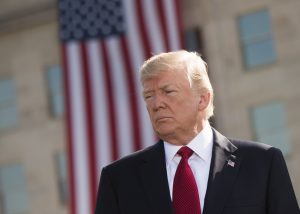As for the Atlantic Alliance, we know what he did to it. By invading Ukraine, Vladimir Putin achieved the feat of rallying Sweden and Finland to NATO and of making Ukraine join it one day, but what about his other adversary, the European Union that he despised so much, whose weakness he wanted to demonstrate and which he intended disunite?
As for the Union, the Russian President has performed the miracle of turning it into a political union, and to be convinced of this you only have to read the speech that the Polish Prime Minister has just given at the University of Heidelberg. Let us be clear. It is not just that, thanks to Vladimir Putin, the Union is being enlarged to gradually include Ukraine, Moldova, the Western Balkans, and probably Georgia as well.
This new enlargement alone will considerably increase the demographic, economic and military weight of the Union, in a word: its force of attraction. This is obviously one of the points that Mateusz Morawiecki stresses in his Heidelberg speech, because all the countries that left the Soviet bloc want to put up the broadest possible front against Vladimir Putin’s dreams of imperial reconstitution as soon as possible. This has always been their wish, even before 24 February, but today it is accompanied by an absolute novelty since the Prime Minister also pleaded, in the same breath and with just as much vigour, for a European Defence.
At the same time, he said, that we must “strengthen and develop NATO, we must build our own defence capabilities”. Off the record, the Polish leadership had been admitting this more and more clearly since presidential candidate and then President Donald Trump had gone out against the Atlantic Alliance, but never before had such a high-level official been so clear publicly about the need for Europe to be able to defend itself if it had to do so.
“My desire” the Prime Minister said ”for the countries of Europe is to be so strong militarily that they do not need outside help in case of an attack but that they can provide military support for others. This is not so today. Without American involvement, Ukraine would no longer exist. And the Kremlin would have moved on to its next victim.
In French, this is called “strategic autonomy” and although Mateusz Morawiecki did not say these words, he shared the spirit of it so well that he went so far as to ask that the military expenditure of the Member States be deducted from the calculation of budget deficits, in other words from the 3% ceiling set by the Maastricht criteria.
This has not been stressed enough: Poland and France are now converging on essential points, those that will make the Union a political union. This has not been said or heard enough: Poland has fully embraced the need for a European defence, which is now on the way to becoming unanimous in the Union, but why is this development, so fundamental and decisive, met with such silence?
The reason is that the Polish right wing in power is so deeply reactionary that it has become quite the pariah and that its Prime Minister insisted at length in Heidelberg on his refusal of any new federal development of the Union. On the contrary, he wanted to reduce the areas of common competence and strongly advocated a Europe of nations in which unanimity would remain the rule.
His idea of Europe was neither that of Paris nor Berlin, but should we be concerned about this and denounce the beginning of the breakdown of the Union, or should we see, on the contrary, the dynamics in which Vladimir Putin is placing Poland and leading it to plead for a common Defense?
Since the tiny Estonia, the one of the 27 States of the Union that most needs to believe in the durability of the American umbrella, calls on the Member States to buy ammunition jointly, since it is heard, since the Union arms itself jointly with common budgets, since it stands up in support of Ukraine and since Poland asks at the same time its 26 partners to equip themselves with a common Defence, we are in fact moving towards a political union.
We do not say so though. We are doing it, and our differences on the degree of federalism we should achieve, at the pace and time frame and the areas we should achieve it, are in fact totally secondary. They will matter one day. This debate will become important again when we have a common defence, pan-European armaments industries and therefore common research and industrial policies. On that day, it will be necessary and timely to ask ourselves who wants to go further, at what speed and whether or not it is essential that we all agree on new chapters, but for the time being, the tasks on which we are converging are heavy enough for us to devote all our efforts to them and postpone tomorrow’s debates.
This Heidelberg speech marks a turning point. Germany and Spain, France and Italy, the Benelux countries and the Scandinavians, Greece and Portugal, Romania, the Czech Republic and the whole of Central Europe must respond to it as quickly as possible, warmly, positively, by getting to the heart of the matter and taking Poland at its word.



